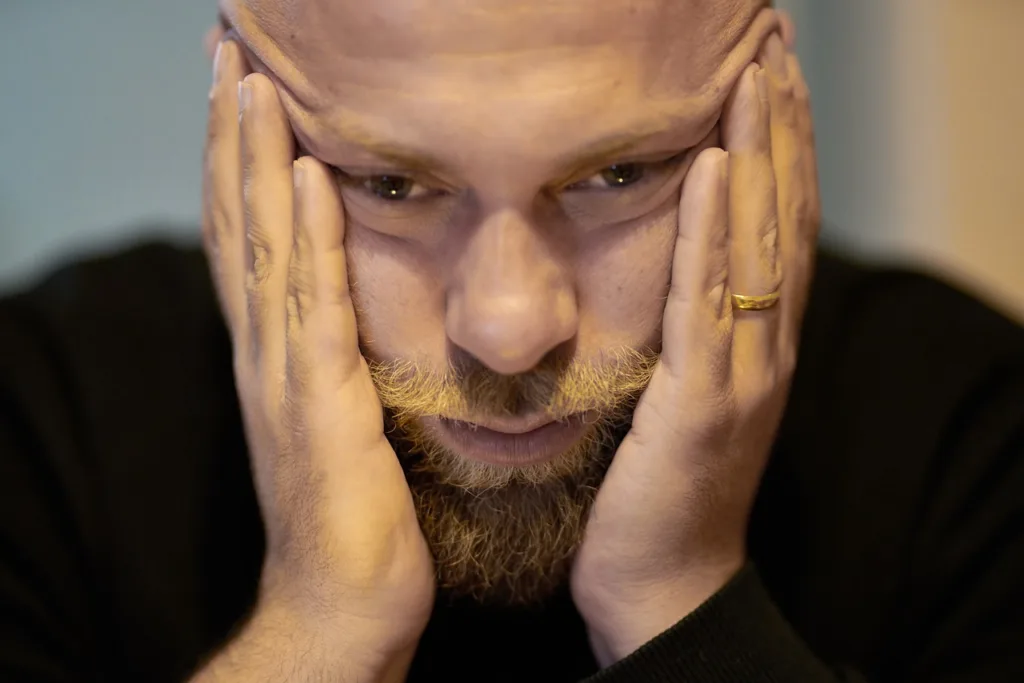Nihilism and pessimism are oftn used interchangeably, but they are not the same thing. While both concepts are often associated with a sense of hopelessness and negativity, there are important differences between them.
Nihilism is the belief that all values are baseless and that nothing can be known or communicated. It is a radical skepticism that denies the existence of objective truth or meaning. A true nihilist believes in nothing, has no loyalties, and no purpose. Nihilism is often associated with extreme pessimism, as the belief that everything is meaningless can lead to a sense of despair and hopelessness.
Pessimism, on the other hand, is a more general sense of negativity or hopelessness. It is the belief that things will not turn out well or that the worst possible outcome is likely. Pessimism can be directed towards a specific situation or towards life in general. It is often rooted in a sense of disappointment or disillusionment with the world.
While nihilism and pessimism are distinct concepts, they can be related. A nihilist may be pessimistic because they believe that nothing has inherent value or meaning. They may see the world as a bleak and empty place, without purpose or direction. A pessimist, on the other hand, may not necessarily be a nihilist. They may have a more nuanced view of the world, acknowledging that there is some value and meaning but still expecting the worst.
It is important to note that neither nihilism nor pessimism is necessarily a desirable or healthy mindset. Both can lead to a sense of hopelessness and despair, which can have negative effects on mental health and well-being. However, it is also possible to find meaning and purpose in life despite these beliefs. Some people find comfort in existential philosophy, which acknowledges the inherent meaninglessness of life but encourages individuals to create their own meaning and purpose.
Nihilism and pessimism are distinct but related concepts. Nihilism is the belief that all values are baseless and that nothing can be known or communicated, while pessimism is a more general sense of negativity or hopelessness. Both can lead to a sense of despair and hopelessness, but it is possible to find meaning and purpose in life despite these beliefs.
Is Pessimism A Nihilism?
Pessimism and nihilism are related but distinct concepts. Pessimism is a belief that the world is generally negative or that things will not turn out well, whereas nihilism is the belief that life has no inherent meaning or value.
While a nihilist may be pessimistic, not all pessimists are nihilists. A pessimist may believe that things will not turn out well, but still see value in life and seek meaning in teir experiences. A nihilist, on the other hand, would reject the idea of inherent value or meaning altogether.
Pessimism is a belief about the likelihood of negative outcomes, while nihilism is a belief that life has no inherent value or meaning. While they are related, they are not the same thing.

Can You Be A Pessimist And A Nihilist?
It is possible to be both a pessimist and a nihilist. A pessimist typically has a negative outlook on life and expects the worst possible outcomes. On the other hand, a nihilist believes that life has no inherent meaning or purpose, and therefore, nothing really matters. In other words, a nihilist sees no point in beng optimistic or pessimistic because both are equally meaningless. So, it is possible for someone to hold both views simultaneously. However, it is important to note that pessimism and nihilism are not the same thing, and one can be a pessimist without being a nihilist, and vice versa.
What Are The Three Types Of Nihilism?
The three types of nihilism are moral nihilism, epistemological nihilism, and cosmic nihilism. Moral nihilism is the belief that moral values are baseless and that no moral principles can be justified. Epistemological nihilism is the conviction that knowledge is impossible, and that our understanding of the world is ultimately meaningless. Cosmic nihilism is the belief that life has no inherent meaning or purpose, and that the universe is ultimately devoid of any significance or value.
Is Nihilism A Cynicism?
Nihilism and cynicism are not the same thing. While both concepts express a certain skepticism towards established norms and values, nihilism goes further by denying the existence of any objective meaning or purpose in life. In other words, nihilism asserts that life has no inherent value or significance. Cynicism, on the other hand, is a more general attitude of distrust towards authority, institutions, and social norms. It can involve a belief that people are motivated primarily by self-interest and that noble ideals are just a cover-up for more base motives. While nihilism can certainly lead to cynicism, not all cynics are nihilists, and not all nihilists are cynics. It is important to distinguish between these concepts in order to understand their different implications for how we view the world and our place in it.
Conclusion
While both nihilism and pessimism share some similarities in their rejection of traditional values and beliefs, they are fundamentally dfferent philosophies. Nihilism negates all meaning and purpose in life, while pessimism acknowledges the existence of meaning but sees it as ultimately negative. While being with a pessimist can be draining due to their constant negativity, being with a nihilist may not even be noticeable as they may hide their lack of purpose and belief in nothingness. It is important to recognize these differences and understand that nihilism is not simply a more extreme form of pessimism, but a distinct philosophy in its own right. Ultimately, whether one embraces nihilism or pessimism, it is important to find some sense of purpose and meaning in life, even if it is only subjective and personal.
